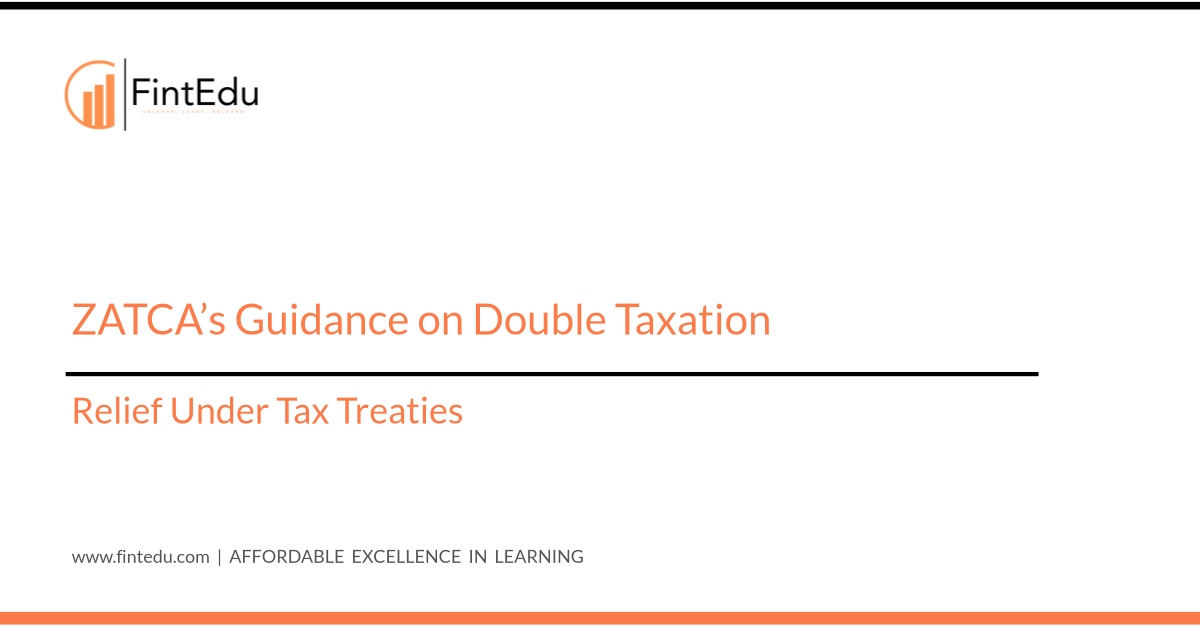LISTEN TO THIS ARTICLE
Double taxation can significantly impact businesses operating across borders, leading to increased tax burdens and compliance challenges. To address this issue, Saudi Arabia offers mechanisms for double taxation relief through its tax treaties. The recent guidance from ZATCA clarifies the available methods, the eligibility of different taxpayer categories, and the procedures for claiming relief.
Understanding these provisions is crucial for businesses seeking to optimize their tax liabilities and ensure compliance with international tax agreements.
Methods of Double Taxation Relief
ZATCA’s guidance outlines two primary methods for eliminating double taxation: the exemption method and the credit method. Each method serves a distinct purpose and varies depending on the specific provisions of individual tax treaties.
1.Exemption Method: Under the exemption method, income that has been taxed in the source country is not taxed again in the residence country. This method includes:
- Full Exemption: Foreign income is totally excluded from taxation in Saudi Arabia.
- Exemption with Progression: Foreign income is exempt from tax in Saudi Arabia, yet, it is considered when determining tax rate on other taxable income.
2.Tax Credit Method: In this method, Saudi Arabia allows taxpayers to deduct foreign taxes paid from their domestic tax liability. This method includes:
- Full Credit: The entire amount of foreign tax paid is credited, even if it exceeds the tax due in Saudi Arabia.
- Ordinary Credit: The credit is limited to the amount of Saudi tax that would have been imposed on the same income if earned domestically.
Globally, the ordinary tax credit method and the exemption with progression methods are the most popular methods of claiming foreign tax credit.
Special Considerations for Zakat-Paying Entities
Saudi Arabia has a unique tax structure where businesses can be subject to either corporate tax, Zakat, or both. The guidance clarifies that tax treaties generally do not provide relief for Zakat, as it is a religious levy based on net worth rather than income. However, for businesses that are dual-status taxpayers—meaning they pay both corporate tax and Zakat—relief is available only for the portion of income subject to corporate tax.
The guidance provides different examples to elaborate this concept further.
Steps for Claiming Double Taxation Relief
Taxpayers seeking double taxation relief (DTR) must follow a structured application process, submitting necessary documentation to ZATCA. The key steps include:
1.Taxpayers must submit an application providing their identification details, the foreign tax jurisdiction, and the type and source of income.
2.The application should provide reference to the relevant tax treaty provisions justifying the relief claim.
3.Supporting documents such as withholding tax certificates, foreign tax receipts, and official tax assessments must be included providing details of foreign taxes paid.
ZATCA evaluates the application, may request additional documents, and grants relief if approved.
Conclusion
Different countries have their respective procedures for claiming foreign tax credit. Like any other country, taxpayers must follow the procedures in Saudi Arabia too. Any delay or error in following procedures should not generally impair the ability to claim a foreign tax credit, however, it may invite unnecessary litigation with the tax authorities and blocking the crucial working capital in tax.
Disclaimer: Content posted is for informational and knowledge sharing purposes only, and is not intended to be a substitute for professional advice related to tax, finance or accounting. The view/interpretation of the publisher is based on the available Law, guidelines and information. Each reader should take due professional care before you act after reading the contents of that article/post. No warranty whatsoever is made that any of the articles are accurate and is not intended to provide, and should not be relied on for tax or accounting advice.
Contributor
Related Posts

Anti-Money Laundering (AML) in the UAE is a core component of the country’s financial and economic...
Read More
In an era where financial transactions occur at the speed of light, the role of an Anti-Money Launde...
Read More
@@PLUGINFILE@@/ttsmaker-file-2025-11-13-12-36-37.mp3Listen to this ArticleIn today’s business envi...
Read More